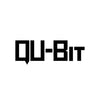Scanned is an organic wavetable oscillator. It uses an unexplored technique known as Scanned Synthesis to animate wavetables that are created in real-time. This synthesis method was conceived by the father of computer music, Max Mathews, as the next paradigm in digital oscillators, and until now, has never been implemented on hardware.
The wavetables are dynamically generated from a set of "objects" tied together on a virtual string. These objects have physical properties including Mass, Stiffness, and Damping which affect the way that the string moves through space and time. Unlike physical modeling, however, this algorithm is a means of creating new electronic sounds, not replicating acoustic instruments.
To animate the waveform, the objects are morphed into the currently selected hammer shape and then released. This excitation of the sound generates evolving timbral landscapes that contain harmonic movement without external modulation. The hammer section also determines whether Scanned is a free-running oscillator, or a triggered sound source allowing it to function as a complete voice without additional filters or VCAs.
Key Features:
- First hardware implementation of Scanned Synthesis
- Organic wavetable generation and animations
- Can be a free-running oscillator or triggered voice
- Inject input allows external audio or CV sources to excite the string
- Evolving timbral landscapes without external modulation
- Four hammer shapes with interpolation
- Aluminum front panel
Got questions?
Head to our contact page or give us a call on 02 9449 8487 and our friendly team will be able to assist you.




















